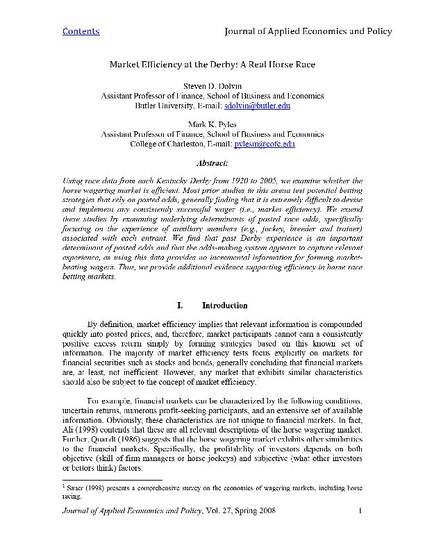
Using race data from each Kentucky Derby from 1920 to 2005, we examine whether the horse wagering market is efficient. Most prior studies in this arena test potential betting strategies that rely on posted odds, generally finding that it is extremely difficult to devise and implement any consistently successful wager (i.e., market efficiency). We extend these studies by examining underlying determinants of posted race odds, specifically focusing on the experience of auxiliary members (e.g., jockey, breeder and trainer) associated with each entrant. We find that past Derby experience is an important determinant of posted odds and that the odds-making system appears to capture relevant experience, as using this data provides no incremental information for forming marketbeating wagers. Thus, we provide additional evidence supporting efficiency in horse race betting markets.
Copyright ©2008 Kentucky Economic Association.
All rights reserved. Permission is granted to reproduce articles published in this journal, so long as reproduced copies are used for non-profit educational or research purposes. For other purposes, including coursepacks, pe rmission must be obtained from the Editor.
Available at: http://works.bepress.com/steven_dolvin/11/
